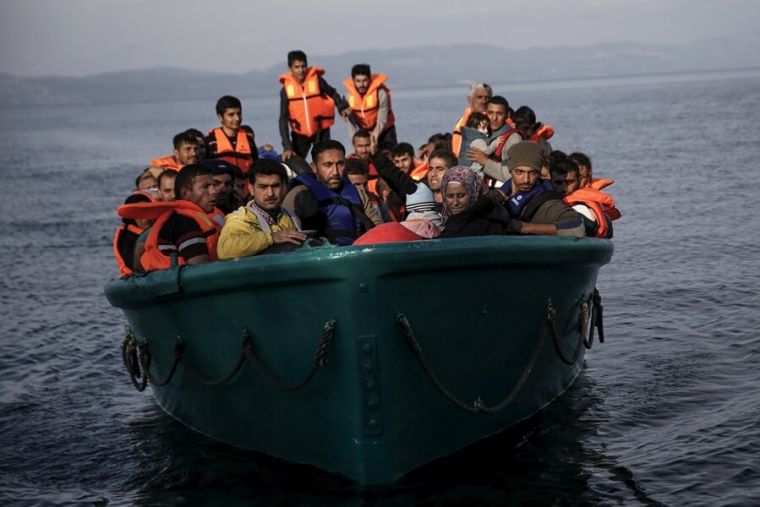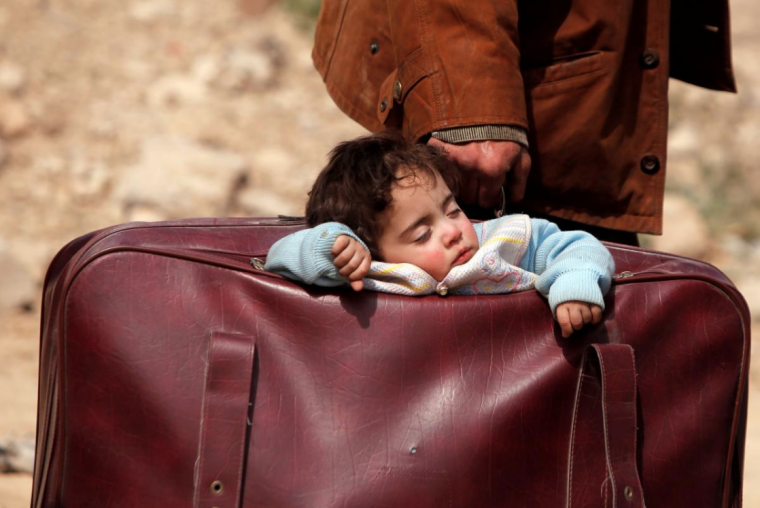The Government's promises on refugee resettlement are simply not good enough

World Refugee Day always brings back memories for me and one memory in particular is always at the forefront - being on a beach in Lesvos (or Lesbos, a Greek island off the coast of Turkey), handing out water bottles to refugees as they clambered off the boats.
What stuck with me, besides the desperation of the refugees, was a woman from New Zealand. She knew nothing about me other than that I was a British politician. She turned to me and yelled 'stop handing out bottles and take some f***ing refugees'.
I'm a patriot. I'm proud of my country, I hate to be made to feel ashamed of my country. But the stark truth is that this aid worker from New Zealand summed up how Britain is seen - shirking responsibility; taking the easy way out.
This isn't how it has always been. Britain has a proud history as a humanitarian leader, of helping people who have been persecuted around the world for who they are, what they believe in or who they love. Historically we have been a place of sanctuary - we used to take pride in it.
In 2015, in response to the refugee crisis across Europe, our Government eventually agreed to take 20,000 refugees from the camps in the region around Syria over a five year period. Initially, David Cameron refused even to provide this fairly minor concession to the desperate people fleeing war and persecution. It was only when the photo of the body of three-year-old Aylan Kurdi face down in the sand was on the front page of every newspaper that the Government was shamed into action.
I remain deeply affected and humbled by meeting parents in refugee camps who took appalling risks to shield their children from even greater risks at home.
But the Government's response to this mass movement of desperate people wasn't compassion; it was crisis comms.

Four years on has anything really changed? The Government often quotes that we are second only to the US in our financial contributions to refugee camps. So far as I am aware, that's true. In many ways that is admirable. We aren't being stingy. But I still think that we are taking the easy way out.
Giving money to support the camps means that we can salve our consciences, a safe distance from the suffering. We can look at our donations in the league table and feel pleased with ourselves, with no need to think too hard about the plight of our fellow human beings.
Imagine what it feels like to be a parent forced to uproot their children from their once settled home to flee war and persecution, as millions of refugees around the world have done. Camps do important work but camps were only ever intended to be temporary, not to be homes; hastily built shelters intended to provide short-term protection and safety for the world's most vulnerable people, families fleeing for their lives.
Around the world, 2.6 million people are currently housed in refugee camps and millions more in makeshift tents they have cobbled together in towns and cities. Few would have imagined, years on, that they would still be living there. Although many camps have become more permanent dwellings and developed makeshift infrastructure, this is a far cry from a new life and the security of a stable home.
When you lob money over the fence at a distance it may salve your conscience but what does it achieve? I was horrified to read one refugee in a Libyan camp recounting how the guards gave them good food and good sanitation when there were visitors but only when there were visitors.
Donations of hygiene products and blankets from charities were photographed before being removed and sold by the guards. We all rightly jump to condemn this unspeakable cruelty. But we also need to question our own actions. Is the aid we are providing doing much the same? Performing to the cameras.
At the beginning of this week, the Government announced that it would be rolling over its resettlement programme for the next year - one year and 5,000 refugees. It is simply not good enough. We should be offering closer to 20,000 for five years.
The UK has learnt a lot from the last five year of resettlement. More councils are involved. There are networks, structures and methods of sharing good practice. We have developed skills and expertise. We should use them.
When did we become a country that was seen as cold and inhospitable? A country that ducks its duty rather than stepping up to the challenge?
In 1945, the Windermere Boys survived horror and were offered sanctuary in Britain. In 2019 the vast majority of refugees arriving in Britain survive horror and are faced with at best bureaucracy and at worst outright rejection. Maybe the aid worker from New Zealand was right. We need to take a step back and look at ourselves through her eyes. I am not convinced we are going to like what we see.
Tim Farron is MP for Westmorland and Lonsdale, a committed Christian and former leader of the Liberal Democrats











